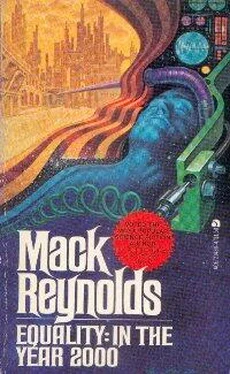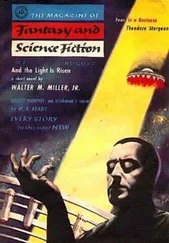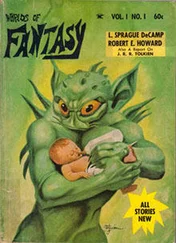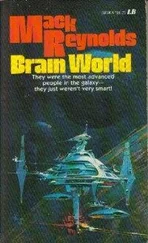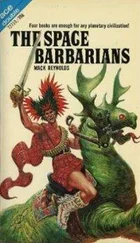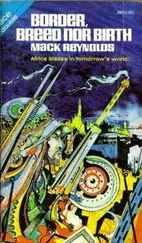Mack Reynolds - Equality - In the Year 2000
Здесь есть возможность читать онлайн «Mack Reynolds - Equality - In the Year 2000» весь текст электронной книги совершенно бесплатно (целиком полную версию без сокращений). В некоторых случаях можно слушать аудио, скачать через торрент в формате fb2 и присутствует краткое содержание. Год выпуска: 1977, ISBN: 1977, Издательство: Ace Books, Жанр: Фантастика и фэнтези, на английском языке. Описание произведения, (предисловие) а так же отзывы посетителей доступны на портале библиотеки ЛибКат.
- Название:Equality: In the Year 2000
- Автор:
- Издательство:Ace Books
- Жанр:
- Год:1977
- ISBN:0-441-21430-4
- Рейтинг книги:3 / 5. Голосов: 1
-
Избранное:Добавить в избранное
- Отзывы:
-
Ваша оценка:
- 60
- 1
- 2
- 3
- 4
- 5
Equality: In the Year 2000: краткое содержание, описание и аннотация
Предлагаем к чтению аннотацию, описание, краткое содержание или предисловие (зависит от того, что написал сам автор книги «Equality: In the Year 2000»). Если вы не нашли необходимую информацию о книге — напишите в комментариях, мы постараемся отыскать её.
Equality: In the Year 2000 — читать онлайн бесплатно полную книгу (весь текст) целиком
Ниже представлен текст книги, разбитый по страницам. Система сохранения места последней прочитанной страницы, позволяет с удобством читать онлайн бесплатно книгу «Equality: In the Year 2000», без необходимости каждый раз заново искать на чём Вы остановились. Поставьте закладку, и сможете в любой момент перейти на страницу, на которой закончили чтение.
Интервал:
Закладка:
“I see. Well, what happens now?”
Harrison said, “We don’t expect an immediate decision, Julian. Think about it and let us know. You can always get in touch with the organization through Sean, here.”
Julian stood up. “All right, I’ll think it over. Good morning, gentlemen.” He looked at Bert Melville. “A real surprise to see you again, Bert.”
“Oh, we’ll see a good deal of each other in the future, Jule. Talk over the old days, when men were men.” He blinked watery eyes in anticipation.
Sean saw Julian to the door and gave him a pat on the shoulder as he left.
Julian walked down the corridors to the elevators.
Fredric Ley packed a gun in a shoulder holster under his left arm. Supposedly it was in a hideaway rig, but Julian West had seen too many guns in his day to be fooled. There had even been times when his financial activities were such that he had retained a bodyguard, armed in much the same manner as was Ley.
Chapter Fifteen
The Year 2, New Calendar
We look beyond the current shock front to a wealthy and powerful and coordinated world society… a society that might find out how to keep itself alive and evolving for thousands or millions of years…It is a tremendous prospect. It is a quantum jump… the world is now too dangerous for anything less than Utopia.
—John R. Platt, Professor of Biophysics The Step to ManJulian returned to his own quarters. Since he had been revived, such a short time ago things had been piling up. And now some of them were coming to a head. He was being faced with various decisions, and was inadequately prepared to make them. The situation irritated him.
He paused before the door to his apartment, then turned and went down to that of the Leetes. As always, since his face was programmed into the identity screen, the door opened at his approach.
He entered the living room to find only Dr. Leete, who had a battered-looking book in his hand and an old-fashioned pencil. He was marking a passage.
“Good morning,” he said. “Edith and Martha are both out. I called you an hour or so ago, and you seemed to have left too.”
Julian nodded. “Have you made any progress with that suggestion of mine yesterday?”
Leete chuckled with self-approval and reached into an inner pocket to emerge with a device that looked like an old fountain pen.
“Yes, and—”
Julian put his finger to his lips in the age-old gesture for silence, and motioned with his thumb to one of the bathrooms.
The other blinked, but held his peace and followed.
Inside, Julian closed the door and once again turned on the running water.
He whispered, “It certainly didn’t take you long.”
Leete beamed. “I ran into a bit of luck. I have a friend who putters around with electronics, physicist chap now retired, but he himself was hesitant. He had no doubt that he could eventually come up with what you wished, but had never done anything along those lines before, and he would have had to start from scratch. However, by sheer chance he has a fellow electronics buff who is fascinated by the subject of bugging and detecting bugs as it applied in your day. My friend introduced me, and Dr. Browning was absolutely delighted to find someone who would even listen to details of his various projects. He had a score and more of some of the most complicated gadgets you ever saw. Did you know that it is possible to pick up from half a mile away the conversation of someone driving along in a vehicle?”
Julian raised a hand to cut him off. “Yes, I’ve heard about it. But I don’t believe we’ll be dealing with anything that sophisticated. What’s that he gave you?”
“He said that it was possibly the most universal, uh, mop he had on hand. But he said that if it didn’t work to come back and—”
“Did you tell him what you wanted it for?”
The doctor looked at him blankly. “I don’t know what we want it for.”
“Did he show you how to operate it?”
“Oh, it’s simplicity itself. He demonstrated it in his workshop. Those little bugs of his are simply fascinating. He had my friend and me hide several of them about the shop while he was out of the room and then—”
“But how do you operate it?”
“You simply press this button on the end and direct the other end at any place you think a bug might be. If there is one, it buzzes.”
“All right. Now keep mum.”
Julian turned off the water and led the way back to the living room, followed by his mystified host. Leete sat down and stared after him as he toured the room, pointing the electronic mop here, there, everywhere. Finally, he approached a painting, an abstract beloved by Edith but which he thought a horror.
A faint buzz emanated from the penlike device he held in his hand.
Academician Raymond Leete’s eyes grew huge.
Julian came closer. The buzz intensified. He deactivated the mop and stuck it in the breast pocket of his jerkin, and reached up and removed the painting from the wall. Silently, he pointed at the circular little device stuck there. It was colored the same as the wall itself and was not easy to detect.
Then Julian put the painting back in place and resumed his search of the room.
He said conversationally, “You know, when we were talking about the socioeconomic changes I was continually surprised at how quickly it all got rolling, once it started moving at all, and how far it went. I would have thought it would take at least a century to have evolved to this point.”
He continued to search the walls, but without further luck.
Leete was far from stupid, and he followed Julian’s lead.
“It’s in the nature of such movements to get out of hand, Jule; to move faster than the ‘leaders’ expected. Take the French Revolution, or the American Revolution of 1776, for that matter. Or the Russian Mensheviks, who started the revolt against the Czar expecting to set up a Western-style parliamentary government, but soon had matters taken out of their hands by the rampaging Bolsheviks. So it was in this country too. When the Second Constitutional Convention met, even those most active in the beginning had no idea how far it would go. Many who started as leaders dropped out hopelessly conservative before it was through.”
There seemed to have been only the one bug in the living room. Julian gestured for the other to follow him and went into the kitchen, complete with its little breakfast nook where the Leetes usually ate. The bug was more easily detected here. It was under the table, once again neatly camouflaged.
Julian kept up a running chatter as they went from room to room.
He said, “Something Edith said the other day has come back to me. She spoke of the Soviet system as being state-capitalism; they called it communism.”
Leete went along with him, his eyes still wide in disbelief. “Remember the old story of Lincoln? He said to a visiting delegation, ‘If you called a sheep’s tail a leg, how many legs would the sheep have?’ And someone answered, ‘Five’. And Lincoln said, ‘No, the sheep would have four legs. Calling a tail a leg doesn’t make it one.’ ”
Julian laughed. “So?”
“So when the bureaucracy running the Soviet complex called itself communist, or socialist, it wasn’t necessarily either system. In your day, the Soviet Union paid lip service to socialism but exploited wage labor, had money, banks, and most of the other symptoms of a capitalist society. The only difference was that the production and distribution system was not owned by individual capitalists; they were owned by the State. And the State was owned by the Communist Party, the leaders of which, at least, led the same good life as did the capitalists in the West. To a lesser extent the same thing applied to, say, Sweden and Great Britain, both of whom paid lip service to socialism—one of the most elastic terms ever to come into the socioeconomic lexicon. As capitalism develops, it becomes less and less practical for some basic industries to remain in private hands, and less profitable. For instance, take the post office. In the early days in America, it was in the hands of private enterprise—even up until the days of Wells Fargo and the Pony Express. But an industrialized, modern society must have an efficient, integrated postal system. A businessman in early New York who wanted to get an important letter to San Francisco had to send it half a dozen times by half a dozen routes and pray one got through. It wasn’t very efficient. The same thing applied in many countries to railroads; they were inefficient in private hands so they nationalized them. In England the coal mines didn’t allow for a profit so the mines were nationalized and took a loss on production, piously calling it socialism. The miners, of course, were as exploited as they had been under private ownership.”
Читать дальшеИнтервал:
Закладка:
Похожие книги на «Equality: In the Year 2000»
Представляем Вашему вниманию похожие книги на «Equality: In the Year 2000» списком для выбора. Мы отобрали схожую по названию и смыслу литературу в надежде предоставить читателям больше вариантов отыскать новые, интересные, ещё непрочитанные произведения.
Обсуждение, отзывы о книге «Equality: In the Year 2000» и просто собственные мнения читателей. Оставьте ваши комментарии, напишите, что Вы думаете о произведении, его смысле или главных героях. Укажите что конкретно понравилось, а что нет, и почему Вы так считаете.
